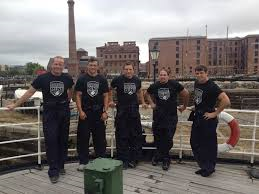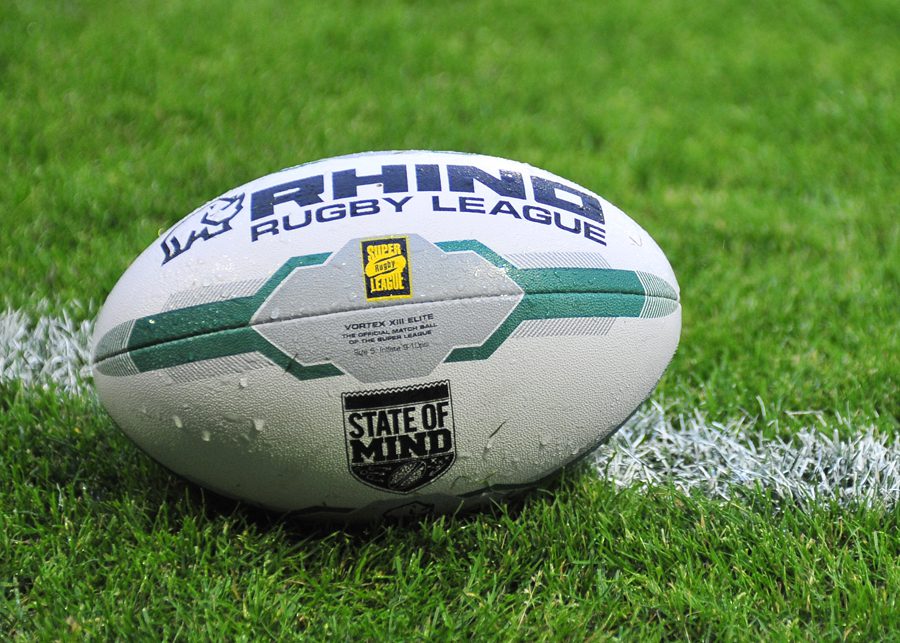David Clegg Speaks With Newly Appointed Salford Red Devils U19s Coach Martin Gleeson and State of Mind twitter ambassador about his change of focus within the club
It may come as a surprise to many of us, but an eventual move into coaching has been at the back of Martin Gleeson’s mind ever since he joined us, at the end of the 2012 season. At that time, his main aim had been his getting back to playing, in order to see whether he could still perform at the top level on the field, but even then he had a developing awareness of the next stage of his career.

That he is now starting upon this is something for which he is extremely grateful to the club. Understandably, he has found it quite different from all his previous experiences, having now to think not simply about rugby itself, but also the managing of players and the preparation for training sessions.
He, consequently, finds himself constantly thinking and planning, most of which he finds himself doing at home. This involves his making notes and carrying out assessments as to how things can be improved. He also finds himself reflecting on coaches under whom he has played, and assessing what he can learn from each of them in order to enhance his own abilities. He believes that knowing what not to do is actually more important than knowing the things which should be done.
One of the fundamental things required of a coach is the ability to break complex aspects of the game into their component parts, and this is a skill which often proves a problem for players who wish to move into coaching. Despite its being a greater challenge than he had expected, within a couple of weeks of working, at that stage with the U16s, he felt quite comfortable in doing this to the extent that he felt that he could move up to the next level.
Clearly, so too did other people within the club, as after only a few weeks he had been installed as coach to the U19s, for next season – a position he had always regarded as the next step up the ladder. When explaining things to the young players he tries to recall just where in his development as a player he himself might have been at this stage, and this enables him to appreciate their level of understanding of the game.
In that way he is able to communicate information in a way that they can understand and act upon. At the moment he is giving them new information every session, and he is constantly evaluating how successfully this has been assimilated. Because some aspects take longer, or, on other occasions, shorter lengths of time to be understood, he, sensibly, continually adapts his forward plans to take account of this.
As a result of this he feels that things are going most satisfactorily, and says, “I believe we are all making good progress. I’ve introduced a number of changes, particularly off the field which have been really challenging, but there has been a real improvement over the last couple of weeks. The intensity has improved significantly.”
In addition, he is beginning to know the players and their personalities well enough now to be able to take account of their own characters to treat them as individuals, whereas initially he was still endeavouring to learn all their names. This is all to the good because one of his more immediate tasks is to have one to one meetings with each of them.
For a player of such high renown, one can but assume that his very reputation will command great respect among the youngsters. In a career covering fifteen years, he played for top quality Super League clubs, and won both the Challenge Cup, in 2004, and Super League Grand Finals, in 2002 and 2010.
The pinnacle of his time as a player, however, was playing internationally for both England and Great Britain. Whilst he says he would have liked more wins to go alongside the memorable victories which they occasionally realised, he is happy now just to have had the success to have played at that exceptionally high level. “It just does not get any better than standing out on the field during the singing of the National Anthem before a game against Australia, or facing the Haka against New Zealand,” is his considered verdict.
Now he is looking forward to getting pleasure and satisfaction in a different way, from seeing his young charges show the progress he wants from them in training, and from seeing them put into practice, in games next season, the many aspects upon which they have worked during the close season.
He has already experienced the enjoyment of this with the increased intensity now evident in training, he mentions above, that the lads have shown recently. So delighted has he been with them, that a meal out in a restaurant for them all seemed a great way to celebrate it. Let us hope that this is the first of a number of such celebrations.
State of Mind would like to wish Martin all the very best in his new career!

